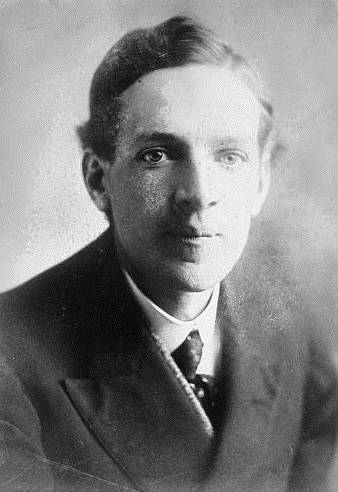
FAQ About Upton Sinclair

Who was Upton Sinclair?
Upton Sinclair was an American writer and social reformer born on September 20, 1878. He is best known for his novel The Jungle, published in 1906, which exposed the unsanitary conditions in the U.S. meatpacking industry. Sinclair was a prolific author whose works often addressed issues of social justice and economic inequality.

What is 'The Jungle' about?
The Jungle is a novel by Upton Sinclair that depicts the harsh conditions and exploited lives of immigrants working in Chicago's meatpacking industry in the early 20th century. The book highlights the dangerous working environments, poor living conditions, and lack of workers' rights, ultimately sparking public outrage and leading to governmental investigation and reforms.

How did 'The Jungle' impact the American meat industry?
The publication of The Jungle in 1906 led to a public outcry over the unsanitary conditions in meatpacking plants. This outrage prompted President Theodore Roosevelt to investigate the industry's practices, resulting in the passage of the Pure Food and Drug Act and the Meat Inspection Act later that year. These laws aimed to ensure the safety and quality of food and pharmaceuticals in the United States.

What reforms resulted from 'The Jungle'?
Following the publication of The Jungle, significant reforms were enacted, including the Pure Food and Drug Act and the Meat Inspection Act of 1906. These laws mandated sanitary conditions for meat production and established standards for food safety and labeling, which were enforced by government inspection.

Did Upton Sinclair intend to impact food legislation with 'The Jungle'?
Although Upton Sinclair's primary goal with The Jungle was to highlight the plight of workers and advocate for labor rights, the public's primary focus became the unsanitary conditions in the meatpacking plants. Sinclair famously remarked, "I aimed at the public's heart, and by accident, I hit it in the stomach," indicating that while he intended to raise awareness of workers' struggles, the book's impact on food safety was an unintended consequence.

What genre of writing did Upton Sinclair primarily focus on?
Upton Sinclair primarily focused on writing in the genre of muckraking. Muckraking involves investigative journalism and writing aimed at exposing social injustices, corruption, and the darker aspects of economic systems. His works often explored themes of social injustice, worker exploitation, and the need for reform.

What other notable works did Upton Sinclair write?
In addition to The Jungle, Upton Sinclair wrote several other notable works, including Oil!, which inspired the 2007 film There Will Be Blood, and The Brass Check, a critique of American journalism. He also wrote the eleven-volume series called Lanny Budd, which includes the Pulitzer Prize-winning novel Dragon's Teeth.

How did Upton Sinclair contribute to social reform beyond his writing?
Beyond his writing, Upton Sinclair was actively involved in social reform by participating in political movements and campaigning for change. He ran for governor of California twice, once as a Socialist and once as a Democrat, advocating for policies to combat poverty and inequality. Sinclair was also involved in various social organizations that supported labor rights and social justice.

Was Upton Sinclair successful in his political career?
Upton Sinclair's political career was marked more by influence than electoral success. He ran for governor of California twice but did not win. His most notable campaign was in 1934 when he ran as a Democrat and introduced the EPIC (End Poverty in California) movement, which proposed economic reforms during the Great Depression.

What was the EPIC movement and how was Upton Sinclair involved?
The EPIC (End Poverty in California) movement was a political campaign initiated by Upton Sinclair during his 1934 run for governor of California. It proposed radical economic reforms aimed at alleviating unemployment and poverty through public works programs and agricultural cooperatives. Although Sinclair lost the election, the movement gained significant public attention and highlighted the need for economic reform during the Great Depression.

Why is Upton Sinclair considered a muckraker?
Upton Sinclair is considered a muckraker because his literary works often sought to expose social injustices, corruption, and economic abuses. Through novels like The Jungle, Sinclair drew attention to the plight of workers, the corruption in industries, and the urgent need for reform. His investigative and unflinching writing style is characteristic of muckraking journalism.

What was Upton Sinclair's writing style in 'The Jungle'?
Upton Sinclair's writing style in The Jungle is characterized by vivid and detailed descriptions that are both emotive and journalistic in nature. He employs a narrative that combines the technique of a novel with investigatory journalism to highlight the struggles of immigrant workers and the deplorable conditions in the meatpacking industry.

Did Upton Sinclair receive any awards for his work?
Upton Sinclair was awarded the Pulitzer Prize for Fiction in 1943 for his novel Dragon's Teeth. The award recognized his literary contributions, particularly in the context of his Lanny Budd series, which dealt with political and social issues linked to World War II.

How is Upton Sinclair viewed in modern times?
In modern times, Upton Sinclair is viewed as an influential writer and social commentator whose works contributed to significant social and political changes in the United States. His dedication to social reform through literature continues to be studied and appreciated in discussions of American history and literary studies.

What legacy did Upton Sinclair leave behind?
Upton Sinclair's legacy includes his impactful writings that sparked significant social reforms and his advocacy for social justice, workers' rights, and economic equality. His work paved the way for future investigative journalists and authors. His role in initiating public discourse on important social issues remains influential today.

Where can I find copies of Upton Sinclair's works?
Copies of Upton Sinclair's works can be found in bookstores, both online and offline. They are also available in digital formats on platforms like Amazon Kindle and Google Books. Libraries often carry physical and digital editions of his novels, and many of his works are available for free in the public domain.

Why did Upton Sinclair turn to socialist ideals?
Upton Sinclair turned to socialist ideals as he believed that socialism offered solutions to the social and economic issues he wrote about, such as worker exploitation and economic inequality. Throughout his life, he advocated for socialist policies he believed would address the systemic issues faced by American society.

How did Upton Sinclair's early life influence his writing?
Upton Sinclair's early life influenced his writing through his firsthand experience of poverty and the disparities between rich and poor. Growing up in different socioeconomic environments exposed him to a range of social issues, which later became central themes in his works, driving his passion for social reform.

Was 'The Jungle' based on true events?
While The Jungle is a work of fiction, it was based on Upton Sinclair's meticulous research and undercover investigations into the Chicago meatpacking industry. The conditions and practices described in the novel were reflective of the real experiences of workers at the time, which Sinclair documented through his observations and interviews.

What influence did 'The Jungle' have outside of the United States?
The Jungle had a significant influence outside of the United States by drawing international attention to the conditions of the American meat industry and the need for food safety regulations worldwide. It also inspired discussions of labor rights and reforms in other industrialized nations, making it a pivotal work in the global dialogue on social and industrial reform.
